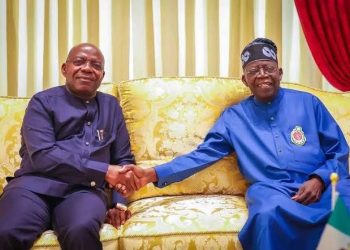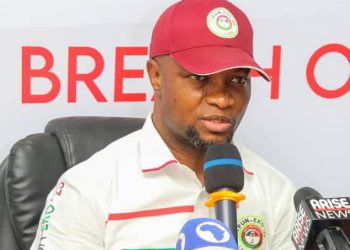As political alignments ahead of Nigeria’s 2027 general elections begin to take shape, the North Central region has intensified its calls for a shot at the presidency, warning that continued marginalisation could cost major political parties votes from the region.
The Northcentral Renaissance Movement (NCRM), a coalition advocating for the region’s political inclusion, has declared that no major party should expect to win votes in the zone if they fail to consider a presidential or vice-presidential candidate from the area.
Professor K’tso Nghargbu, the chairman and convener of the group, made the position clear during a press briefing in Abuja, citing decades of political exclusion as justification for the demand.
“The North Central geopolitical zone seeks — and demands — that political parties cede their presidential ticket to the zone,” Nghargbu said. “We say this not as a threat, but emphatically: any party that despises our position will also be despised by our votes.”
The Zone That Never Held Power
The North Central region, which includes Benue, Niger, Kogi, Kwara, Plateau, Nasarawa States, and the Federal Capital Territory (FCT), has never produced an elected president or vice president since Nigeria’s independence in 1960.
While the region has had military leaders in the past — General Yakubu Gowon (1967–1975) and General Ibrahim Babangida (1985–1993) — both came to power through coups, not democratic elections.
By contrast, every other geopolitical zone in Nigeria has produced either an elected president or vice president, prompting what the NCRM describes as “political marginalisation” of the North Central.
“We are the only region that has never had an elected president or vice president in this Republic. That must change in 2027,” Nghargbu insisted.
Current Zoning Landscape
The agitation comes as major parties begin laying the groundwork for 2027:
-
The All Progressives Congress (APC) has endorsed incumbent President Bola Ahmed Tinubu, who hails from the Southwest, for a second term.
-
The Peoples Democratic Party (PDP) has zoned its presidential ticket to the South, although internal wrangling over micro-zoning persists.
-
The African Democratic Congress (ADC) is yet to announce its zoning policy, but critics argue that the party has become a platform for former Vice President Atiku Abubakar, who is from the Northeast, to re-enter the race.
-
The New Nigeria Peoples Party (NNPP), led by Rabiu Kwankwaso, faces internal divisions, with some members pushing for a return to the APC. Kwankwaso, from Kano in the Northwest, remains influential but politically isolated.
-
The Labour Party (LP) continues to struggle with internal leadership crises, even as court judgments have affirmed the caretaker leadership of Senator Esther Nenadi-Usman. Former LP candidate Peter Obi, from the Southeast, remains a key contender if the party stabilises.
In this political context, the NCRM believes the North Central presents a “middle-ground” solution amid growing distrust between northern and southern elites.
“The North Central zone emerges as the best solution to restore national unity, given the increasing political bitterness between the far North and South,” Nghargbu said.
2027 Aspirants from North Central
Among the names being floated from the zone is Dr. Gbenga Olawepo-Hashim, a seasoned politician who has signaled interest in contesting the 2027 presidential election under the PDP.
Nghargbu added that more aspirants from the region are expected to declare soon, saying the zone is rich in “political human capital” and capable of producing visionary national leaders.
Backing Independent Candidacy
The NCRM is also pushing for constitutional reforms to entrench independent candidacy, allowing credible individuals to run for office outside of political party structures.
“Independent candidature is one of the answers Nigeria is looking for,” said Nghargbu. “It’s a check on the excesses of political parties that are money-drunk and godfather-driven.”
A Subtle Warning to Political Parties
While the group stopped short of outlining specific actions it would take if ignored, Nghargbu made clear that political parties risk electoral consequences if they fail to include the North Central in their presidential calculations.
“Patronising us means having our votes. Despising us means losing our votes,” he declared. “We have spoken to the political conscience of Nigeria.”
As the 2027 race inches closer, the North Central region’s agitation for top leadership positions may further reshape zoning debates, particularly as power rotation remains a contentious and unresolved issue in Nigeria’s evolving democratic experiment.




















